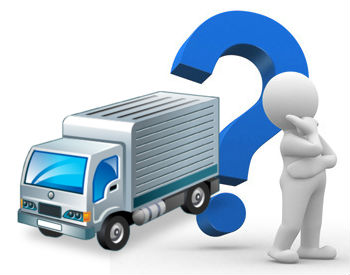Freight Shipping Frequently Asked Questions
Since we are a 3PL (Third Party Logistics) company, we are not restricted to certain fright lanes like asset based freight companies. We are setup with thousands of freight carriers across the country, so we can handle any lane in the USA. When you ask for a freight quote, our system will match it with the best carrier for that freight lane and load. We also utilize the best freight matching load boards to find carriers in need of freight for any freight lanes our customers are looking at a given time.
So no matter what lane you are trying to move your freight, we can handle it. However, because we are based out of the northeast, our strongest and best freight rates will be in and out of this region.
The National Motor Freight Traffic Association publishes the National Motor Freight Classification® (NMFC®), a standard that provides a comparison of commodities moving in commerce.
The National Motor Freight Traffic Association (NMFTA) allocates a specific number to every commodity that could be shipped. The freight class on the bill of lading is determined based on the NMFC commodity number. It’s always a good idea to include the NMFC number on the bill of lading to avoid the carrier from reclassification your shipment to a higher freight class.
The National Motor Freight Traffic Association is a nonprofit membership organization headquartered in Alexandria, Virginia. Its members are motor carriers operating in interstate, intrastate and foreign commerce. Rapid Express Freight is proud to be a NMFTA member.
A pro number is a unique shipment number assigned by each carrier to a picked up shipment. It is used to track the shipment. In most cases, the pro number will be the same as the freight invoice number.
A blind shipment is when the shipper and/or receiver don’t know who is the actual sender or receiver of the freight. The bill of lading will show the owner of the goods as the shipper or receiver. The carrier will help facilitate the actual shipment. A common use of “Blind Shipment” is when a distributor drop ships an order from the manufacturer directly to their customer. The bill of lading will show the distributor as the shipper. This may be referred to as a “Half Blind Shipment” since the shipper (manufacture) will post the distributor name as the shipper. The customer will think it comes from the distributor. For more information, please visit our Blind Shipment page.
FOB is an acronym for “freight on board”. Responsibility for freight costs is determined by the suffix “Origin” or “Destination” after “FOB.” “FOB Origin” indicates that the individual or organization originating the purchase (receiving the goods) is responsible for freight costs/liability. “FOB Destination” indicates that the person or organization receiving the order (sending the goods) is responsible for freight costs/liability. Specific terms of the agreement can vary widely, in particular which party (buyer or seller) pays for which shipment and loading costs, and/or where responsibility for the goods is transferred. The last distinction is important for determining liability or risk of loss for goods lost or damaged in transit from the seller to the buyer.
The bill of lading is a legally binding document providing the driver and the carrier all the details needed to process the freight shipment and invoice the shipment correctly. The bill of lading from carrier to shipper can be used as an evidence of the contract of carriage by the fact that carrier has received the goods and upon the receipt the carrier would deliver the goods. Since the Bill of Lading is a legally binding contract, it is very important that shippers and freight managers understand the terms (prepaid, collect, section seven, etc) and know how to complete the bill of lading.
Please note that Rapid Express Freight prepares Bill of Ladings free of charge to all our customers upon request. This service is available no matter if you are the shipper, receiver or organizer/payer of the freight (for drop ship orders, etc).
In trucking, a backhaul is a hauling cargo back from point B to the originating point A. Since it costs almost as much time to drive empty as fully loaded. Hence the term “Backhaul”. This makes economic sense, since it helps to pay for the operating expenses for the trip back to the originating point A for the trucking company and/or trucker.
A good example of a backhaul is the following scenario. A freight company contracted to moves loads of oranges from Florida to the Northeast. The truck unloads in New York, but has to head back to Florida as soon as possible for additional loads. Since the truck will go back empty or full, the freight company will be willing to move a load at a discounted freight rate.
Since the popularity of freight load boards in the mid 1990’s, the use of backhauls has declined. Trucking companies will post their available empty equipment way in advance before even heading out with the original load.
A freight broker is an independent contractor paid to arrange motor carrier transportation. A broker may work on the carrier or shipper’s behalf. In the United State freight brokers must be licensed by the US Department of Transportation and must have a trust fund (bond) at least in the amount of $75,000.
Rapid Express Freight is licensed and bonded in all US States by the USDOT, Federal Motor Carrier Safety Administration (FMCSA).
Intermodal freight transport involves the transportation of freight in an intermodal container or vehicle, using multiple modes of transportation (rail, ship, and truck), without any handling of the freight itself when changing modes. The method reduces cargo handling, and so improves security, reduces damage and loss, and allows freight to be transported faster. Reduced costs over road trucking is the key benefit for intermodal freight delivery, as well as reduced greenhouse gas emissions. In North America, the term Intermodal is mostly use for rail freight using the formula of truck-rail-truck, door to door. An example would be moving freight from the east coast (i.e. Newark) to the west coast (i.e. Los Angeles) by rail. Rapid Express Freight will handle the entire process.
Accessorial charges are charges made for performing services beyond normal pickup and delivery. Examples include inside delivery, lifgate service or storage charges.
 Need help?
Need help?
A Rapid Express Freight rep is ready to help you.
Monday to Thursday: 8am – 6pm
Friday: 8am – 3pm
- Freight Quotes
- Shipment Tracking
- Pick Up
- Customer Service
Contact a freight specialist:
Call: (718) 218-6868
Email: info@rapidexpressfreight.com



